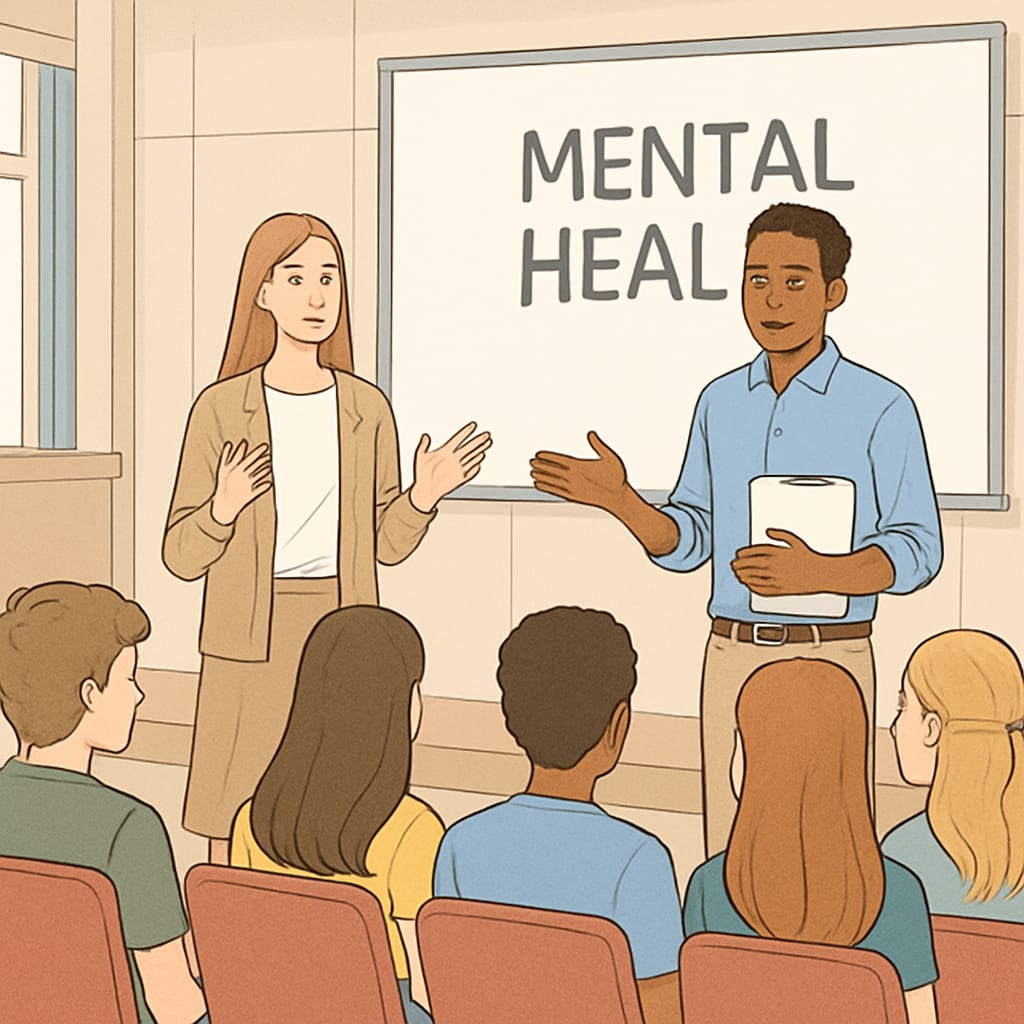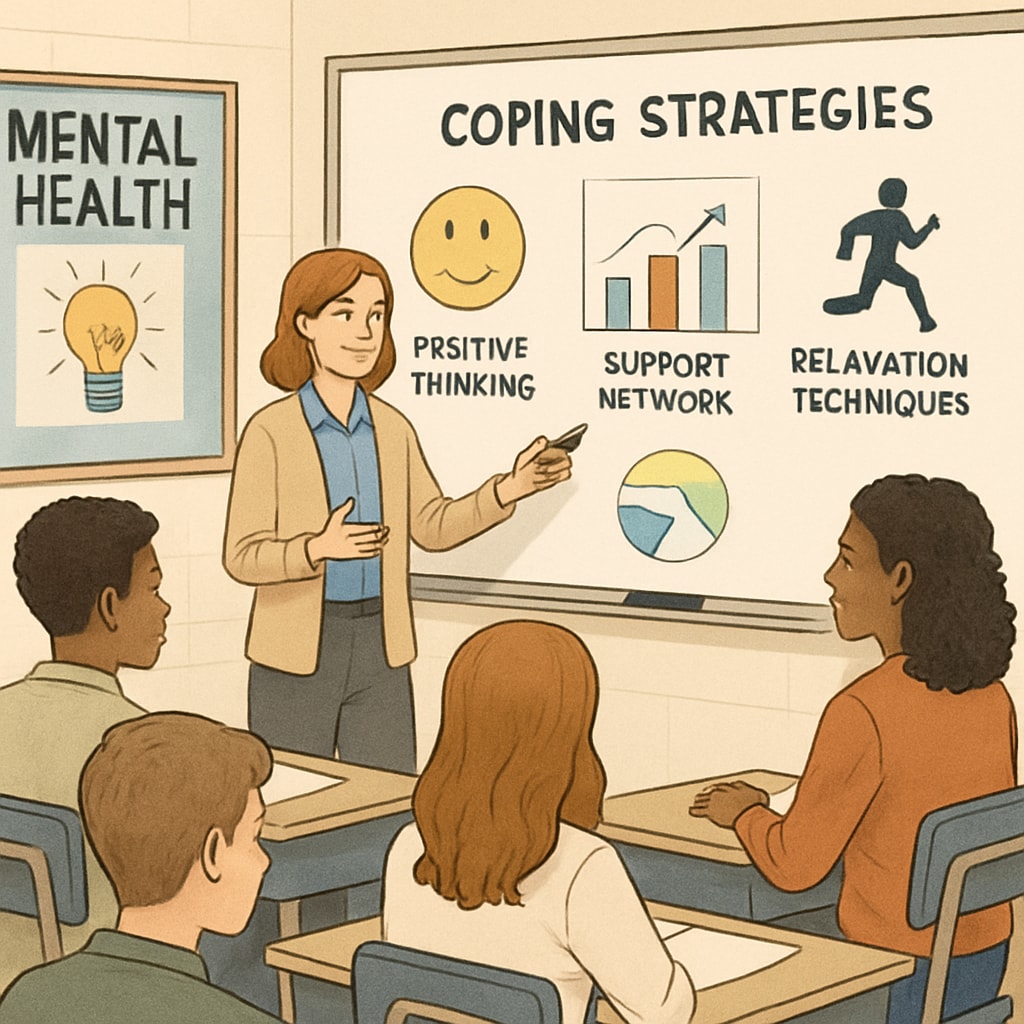The growing prevalence of mental health issues among teenagers is an undeniable concern. Organizing mental health talks for high schoolers can bridge the gap between professional knowledge and student needs. As future healthcare professionals, medical students are uniquely positioned to provide relatable, evidence-based insights into mental well-being. Effective planning and execution of such events can significantly impact adolescent mental health awareness.
The Importance of Mental Health Awareness Among Teenagers
Mental health challenges, including anxiety, depression, and stress, are increasingly common among high school students. According to the World Health Organization (WHO), half of all mental health conditions begin by the age of 14. Unfortunately, many cases remain undiagnosed and untreated. Early intervention through education can play a critical role in breaking stigma and encouraging students to seek help.
Medical students, with their foundational knowledge in psychology and medicine, can serve as mentors and educators. By organizing mental health talks, they can address misconceptions, share coping strategies, and promote a culture of openness. These events are not just informative but also empowering, as they provide teenagers with the tools to recognize and address their emotional well-being.

Steps to Organize Effective Mental Health Talks
Planning a successful mental health talk requires careful preparation, collaboration, and an understanding of the audience. Below are key steps to ensure the event’s success:
- Identify Objectives: Determine the primary goals of the talk, such as raising awareness, offering coping mechanisms, or signposting resources for help.
- Build Partnerships: Collaborate with school administrators, counselors, and local mental health organizations for support and credibility.
- Tailor the Content: Develop age-appropriate content that resonates with high schoolers. Use relatable examples and interactive elements to engage the audience.
- Train the Speakers: Ensure medical student presenters are well-prepared and confident in addressing sensitive topics. Role-playing and rehearsal can enhance delivery.
- Include Resources: Provide students with take-home materials, such as brochures or links to trusted mental health websites like National Institute of Mental Health.
- Evaluate the Impact: Collect feedback through surveys to assess the effectiveness of the event and identify areas for improvement.
Overcoming Challenges in Organizing Mental Health Talks
While the idea of hosting mental health talks is commendable, practical challenges may arise. One common hurdle is overcoming the stigma associated with mental health. To address this, medical students should adopt a compassionate and non-judgmental tone. Sharing personal anecdotes (where appropriate) can also create a sense of relatability and trust.
Another challenge might be engaging the audience. Teenagers can be reluctant to open up or participate actively. Incorporating interactive activities, such as anonymous Q&A sessions or role-playing scenarios, can help foster engagement. Additionally, creating a safe and inclusive environment is paramount to the success of the event.

Key Success Factors for Impactful Events
The success of a mental health talk depends on several factors:
- Relevance: Ensure the content addresses the specific challenges faced by high school students, such as academic pressure and social anxiety.
- Collaboration: Work closely with school staff to align the program with their existing mental health initiatives.
- Follow-Up: Offer opportunities for ongoing learning, such as workshops or one-on-one counseling sessions.
- Empathy: Approach every interaction with sensitivity, understanding that mental health is a deeply personal topic.
Conclusion: Building a Healthier Future
Organizing mental health talks for high schoolers is a rewarding endeavor that allows medical students to make an immediate and meaningful impact. These events not only educate teenagers but also foster a culture of empathy and support within school communities. By addressing mental health challenges early, we can pave the way for a healthier and more resilient generation. For medical students, this is an opportunity to translate their knowledge into action, proving that even small initiatives can create lasting change.
Readability guidance: This article uses concise paragraphs and lists to enhance readability. Transitions such as “however,” “in addition,” and “for example” ensure a smooth flow of ideas. The content avoids jargon and explains key terms for clarity.


